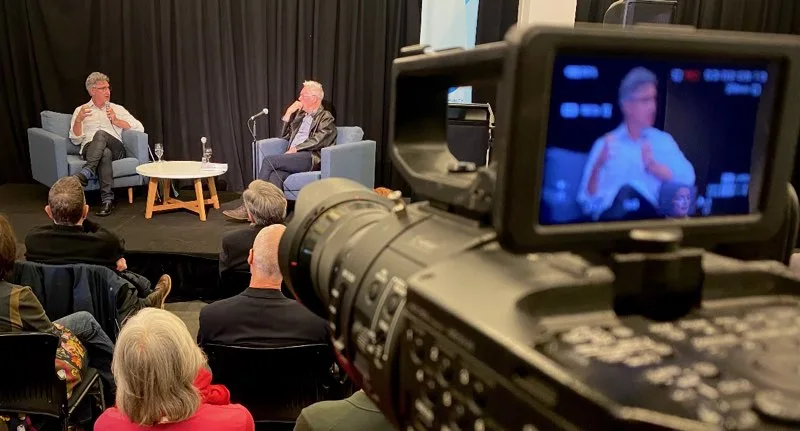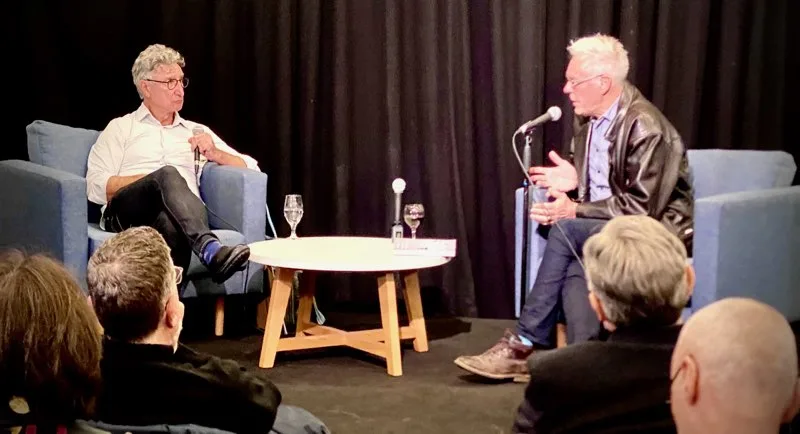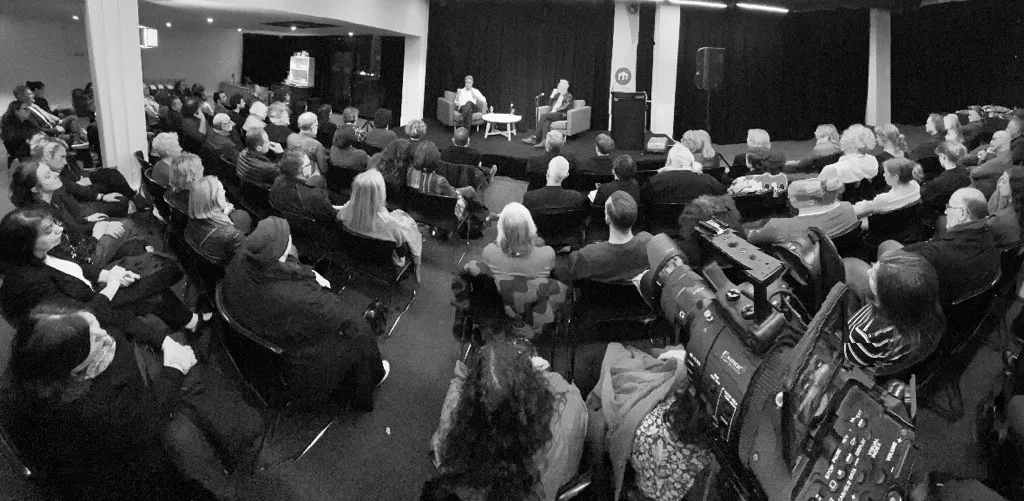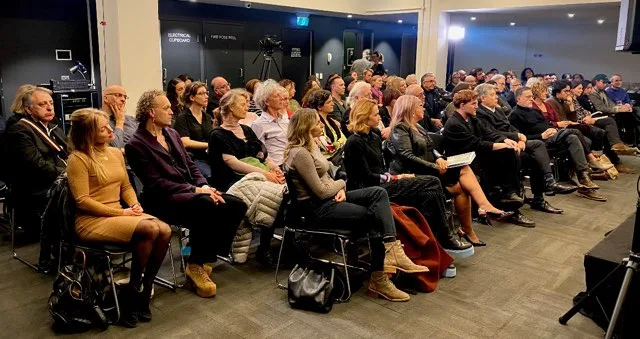Before a packed house comprising of leading scholars, artists and community members at the Greek Center in Melbourne, Nikos Papastergiadis launched his most recent book. The Cosmos in Cosmopolitanism is published by the world-renowned Polity Press in Cambridge, United Kingdom.
This is the tenth book sole-authored by Papastergiadis and it marks the completion of a trilogy of books on migration, cultural theory, and contemporary culture.
On the occasion of the launch of this latest book, Papastergiadis was joined in conversation with the esteemed author and artist Professor Paul Carter. Together they mapped out the novel pathway that Papastergiadis has taken to widen and invigorate the idea of cosmopolitanism.



Papastergiadis noted that cosmopolitanism is commonly associated today with the idea that the forces of globalisation could be tempered by new forms of cosmopolitan governance. However, he also pointed out that while this idea was popular among some political theorists in the late 20th century, it seems increasingly unrealistic today.
Rather than discarding the idea of cosmopolitanism, Papastergiadis set out to renew it by examining the ways in which visual artists have explored themes associated with the cosmos. Artists often claim that all humans possess a fundamental capacity to care, create and connect. Some artists also argue that this creative capacity is linked to a dual connection – companionship with others and with the cosmos. The Ancient Greeks claimed that tuning in to the cosmos was the primal source of inspiration.
The great Enlightenment philosopher Immanuel Kant regarded cosmopolitanism as the goal for humanity, but he turned his attention away from the connection to the cosmos and directed it towards the practical rules for peaceful co-existence. However, these two concerns are not in conflict.



Today a new vision of the cosmos is being developed by artists among others, one that brings together the cosmos and the polis. Scholars from the South are decolonising the mindset which divided the world and split us from our common connections, while others are using art to highlight the existential threats we now face as a species.
By developing a distinctive form of aesthetic cosmopolitanism, Carter also concluded that this book shows that the idea of the cosmos is more important than ever today, and vital for our attempts to rethink our place as one species among others in a universe that extends far beyond our world.
He showed that the ideas in the ancient archives of Greek philosophy can be used as a starting point for developing sophisticated dialogues on multiculturalism and provide new ways for building bridges with the cosmologies that are embodied in Indigenous cultures.
